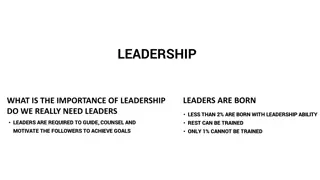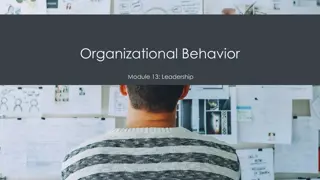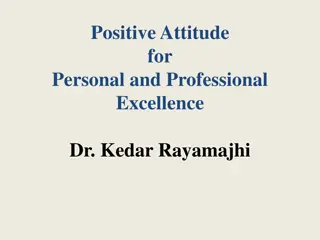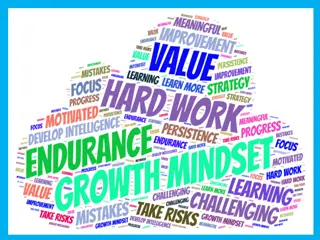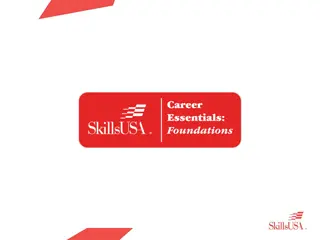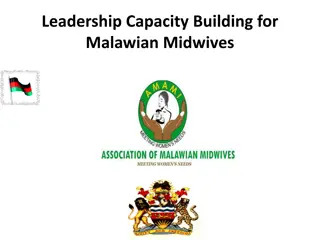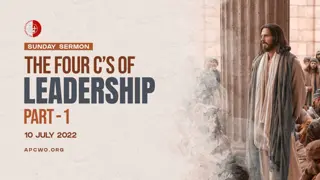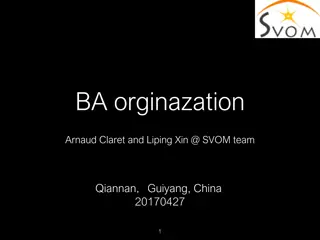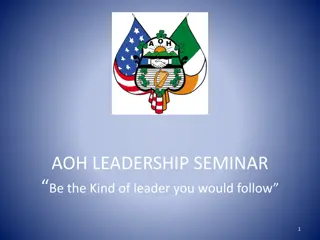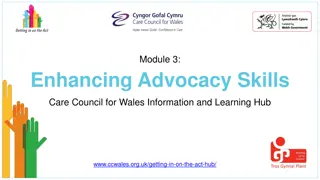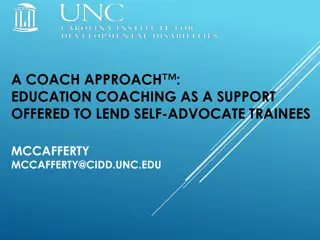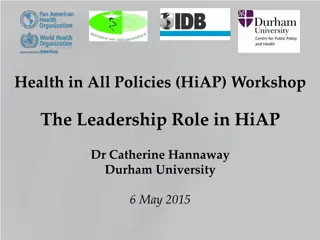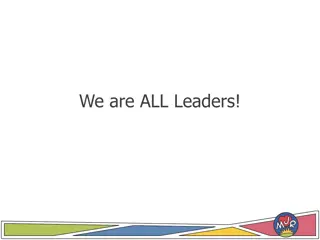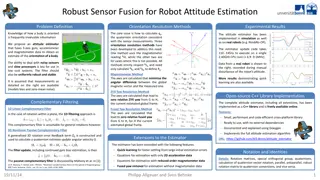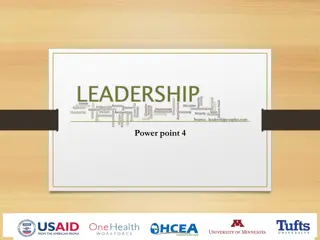Qualities of an Advocate: Attitude, Skills, and Leadership
An advocate requires a positive attitude, key skills like communication and adaptability, and effective leadership qualities to navigate challenges, build relationships, and achieve change. Essential competencies include hope, transparency, and the ability to work with diverse groups. Success comes from analyzing opportunities, communicating effectively, and balancing assertiveness with humility.
Download Presentation

Please find below an Image/Link to download the presentation.
The content on the website is provided AS IS for your information and personal use only. It may not be sold, licensed, or shared on other websites without obtaining consent from the author. Download presentation by click this link. If you encounter any issues during the download, it is possible that the publisher has removed the file from their server.
E N D
Presentation Transcript
QUALITIES QUALITIES OF AN OF AN ADVOCATE ADVOCATE
Required Competencies 1. Attitude 2. Skills 3. Knowledge 4. Leadership 5. Challenges and risks
1. Attitude Hope and belief that change is possible despite obstacles and overwhelming odds Willingness and confidence to challenge entrenched institutionalized power Belief in and practice of non-discrimination, equality, and inclusion Belief in democratic values and processes
Recognition for different roles at different times Willingness to be transparent Commitment patience and stamina to engage in long struggle to achieve and maintain change Celebration of substantive victories and process victories
2. Key Skills Be able to work with different people Listen to one s members and constituents, allies and opponents Learn from experience and exchange with others in formal and informal ways Maintain a vision of what you want Analyse who has a stake in an issue
Analyze opportunities to act and when to negotiate Adapt to new situations Admit uncertainty, mistakes, and what one wishes had been done differently Provide constructive criticism without personalizing judgments
Express anger, love and warmth in a way that will strengthen team effort Build relationships that can survive disagreements and allow working with former adversaries Generate pressure through grassroots mobilizing and organizing Gather analyze and synthesize diverse information
Communicate effectively Build a team. Balance modesty and assertiveness.
3. Key Knowledge The political and policy systems Power relationships in the system and what influences decision makers and their decision- making process. This includes: Civil society The media The state The market International financial institutions The United Nations
Who the stakeholders are which issues do they agree on and which ones do they disagree on Entry points to decision making systems how to intervene in policy and budget processes and how to counter corruption
4. Leadership Is very critical in strengthening movements for the long term Three elements must be considered Style Roles Responsibilities
Styles Authoritative Hierarchical Elitist Possessive of information, power Results oriented One person show Leaders born Traditional Participatory Empowering Democratic Sharing People centered Transparent Leaders Made! Emerging
Roles Throughout an advocacy attempt many stages of problem solving cycle, issue life cycle, and organizational life cycle require versatille skills No one person can do it all Effective leadership means that roles and responsibilities are shared out among the team according to competencies and mentorship
To build effective leadership advocates and organizations need to Assess themselves to see who fills which roles and which roles are missing but needed Identify which stages of the cycles best match their leadership strengths Understand the limitations of their leadership abilities and create alliances to overcome these Develop abilities in more than one area of leadership
To maintain an environment of innovation and sustenance Cultivate second and third generations of leadership Encourage talent so that new people regularly assume new leadership roles Develop systems to identify and draw in talented individuals Build teams of individual leaders that complement each others strengths
Responsibilities Effective leadership should be able to Translate and decipher the workings of the political and policy processes Glue together and attach different parts of the movement and persuade factions to unite Connect and solidify relationships with those outside the movement
5. Challenges and Risks You or your organization may be blacklisted You may be considered a threat to the establishment You will not be invited to some meetings and gatherings You may lose your job You may be labeled as The opposition A trouble maker and a rabble-rouser
How to limit Risk Remain focused on the issue Avoid becoming emotional Use approaches and techniques that are culturally acceptable to the one being advocated to Make sure you have objective supporting evidence to support the case or issue


